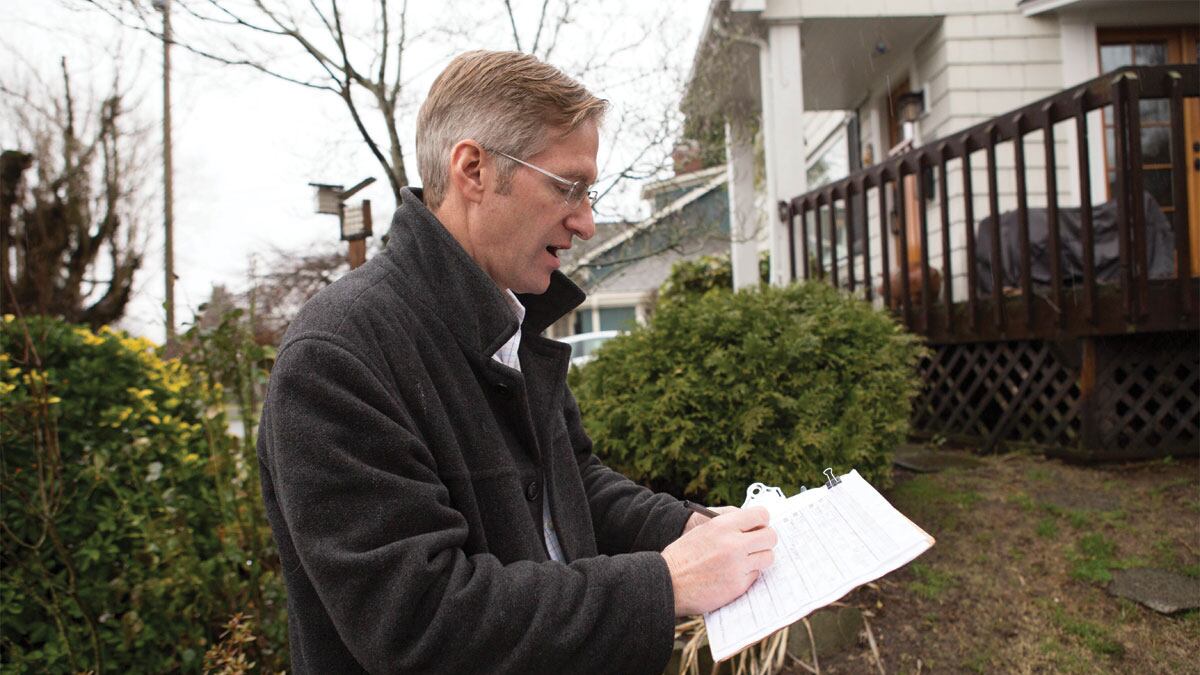On Jan. 3, Portland Mayor Ted Wheeler made the first big decision of his young administration: He divvied up the city bureaus.
Portland's "weak mayor" form of government means the assignment of bureaus is the chief power the mayor has over city commissioners. Wheeler's announcement is giving his new colleagues both a potential base of support and new challenges.
Political missteps in posting commissioners to bureaus can end a mayor's prospects before they begin. (In a vivid recent example, Mayor Charlie Hales tossed Commissioner Nick Fish the unwanted water and sewer bureaus in 2013, and their relationship never recovered from the move.)
Even more importantly, assigning the bureaus is an opportunity for fresh eyes to examine what is and isn't working in Portland. It's the earliest opportunity to change the direction of city government.
Here are six bureaus that present their leaders with the biggest challenges.

Housing
Assigned to: Himself
The challenge: This bureau will receive a lot of attention during the next couple of years. The shortage of affordable housing in Portland, the decision by voters in November to give the city $258 million to build more homes, and the promise that Wheeler made during the campaign to build units less expensively than have previous housing Commissioners Nick Fish and Dan Saltzman, mean that the new mayor had little choice but to keep this bureau. Wheeler's key housing policy proposal—to protect tenants from no-cause evictions—will require action from the Oregon Legislature. "It will test whether he is a good mayor," says Portland Tenants United organizer Margot Black, "a test I hope that he passes with honors, and not by memorizing last year's answers."

Office of Neighborhood Involvement
Assigned to: Chloe Eudaly
The challenge: This office (which does everything from regulate cannabis to license bars) received poor grades in a recent city audit, and in a WW interview, Wheeler himself pointed to it as the bureau most in need of reform (in a tie with the Police Bureau). Wheeler is taking the office away from its champion, Commissioner Amanda Fritz, and handing it to a political novice, Eudaly. Wheeler spokesman Michael Cox says handing Eudaly a "tough, complicated" office is a vote of confidence. "With regard to both outreach and neighborhood involvement, Commissioner Eudaly demonstrated during the campaign that she excels at both."

Transportation
Assigned to: Dan Saltzman
The challenge: This bureau had been the responsibility of Commissioner Steve Novick, who lost his bid for re-election in November, in part because of his ham-handed attempt to pass a "street fee" two years ago. Voters eventually supported a 10-cents-per-gallon gas tax in May. The bureau will now have an estimated $64 million in funding over the next four years to make street repairs as well as install upgrades for pedestrians and cyclists. Someone must watchdog that money if the city expects voters to renew the tax in 2020. There's mounting pressure from advocates for a bolder plan to prevent deaths on city streets. With no obvious leader on transportation, Wheeler viewed Saltzman's experience as an asset.

Emergency Communications
Assigned to: Amanda Fritz
The challenge: The Bureau of Emergency Communications—which handles the city's 911 calls—is among the city's most troubled departments. Wait times for 911 callers have increased by at least one key measure. Just last month, a report from the Ombudsman's Office said the city had no way of returning more than 18,000 cellphone calls to 911 that were dropped or hang-ups. Fritz is a puzzling choice to handle reforms—she led the bureau before and drew criticism during her 2012 re-election campaign for her leadership of it. Fritz declined to comment to WW. Rob Wheaton, a representative for American Federation of State, County and Municipal Employees Council 75, the BEOC workers' union, says Fritz is ready to run 911 again. "She's a lot more savvy than she used to be," Wheaton says. (Disclosure: This reporter's husband works for AFSCME.)

Water/Environmental Services
Assigned to: Nick Fish
The challenge: Four years ago, the city's water and sewer ratepayers were in revolt, and no hot button sizzled more than the fate of open-air reservoirs on Mount Tabor. That's why Fish bristled at being saddled with the utilities. But Fish steered the city through the water wars, increasing transparency and cutting big-ticket projects. One huge cost remains, however: The Bureau of Environmental Services also runs the city's share of the Superfund cleanup in Portland Harbor, a project that could cost upward of $746 million. A judge's decision whether sewer ratepayers will be on the hook for the cleanup is expected to be announced as soon as next week. The ruling could affect the city's general fund budget, as could a Jan. 6 announcement expected from the U.S. Environmental Protection Agency on its cleanup plan. (So too could the Trump administration's efforts to dismantle environmental rules.)

Police Bureau
Assigned to: Himself
The challenge: Even as Portland remains a relatively safe city, the assignment is likely to prove complicated. Last fall, City Hall approved a new police contract that will last three years, giving Wheeler little leverage for any reforms he wants to make. Hales faced repeated protests this fall after he negotiated a contract with significant raises for police but failed to expand authority for the Independent Police Review. "[The contract] gave the police chief and the police union the tools that they said they needed to improve recruitment and retention," Wheeler told WW last month. "And now I'm going to hold them accountable for it."
WW staff writer Beth Slovic contributed reporting to this story.
Correction: This story has been updated to reflect that a judge's ruling on whether public utilities and ratepayers can cover the city's Superfund costs is expected next week at the earliest.

